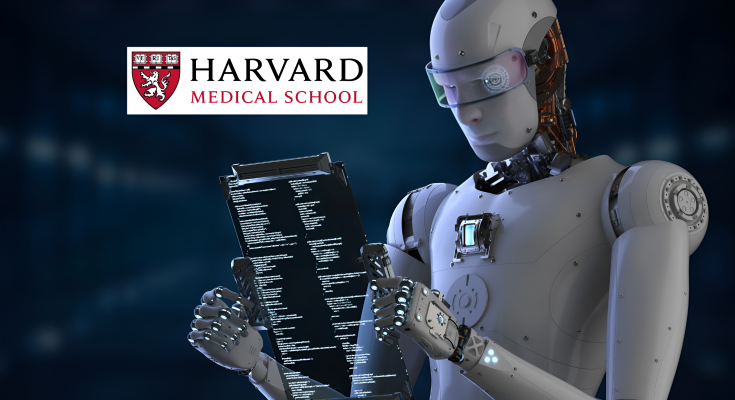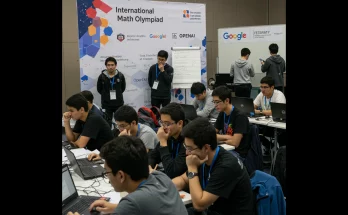The advent of generative AI has sparked a monumental shift in various fields, and medical education is no exception. At Harvard Medical School (HMS), this innovative technology is being harnessed to train the next generation of physicians more effectively than ever before. From the introduction of AI-centric courses to the integration of AI tools in clinical settings, the landscape of medical education is transforming rapidly.
The Role of Generative AI in Medical Education
Generative AI refers to algorithms capable of generating new content, including text and images. As these technologies evolve, their integration into educational frameworks, particularly in medicine, presents both challenges and opportunities. HMS recognizes this opportunity and is leading the charge to incorporate AI into its curriculum.
Bernard Chang, HMS dean for medical education, emphasizes this pivotal moment: “Maybe once every few decades a true revolution occurs in the way we teach medical students and what we expect them to be able to do when they become doctors. This is one of those times.” This quote captures the essence of the current landscape as HMS embarks on an ambitious journey to prepare its students for a future intertwined with advanced technologies.
Introducing AI in the Curriculum
One of the first initiatives taken by HMS was to introduce a one-month course on AI in health care for all incoming students in the Health Sciences and Technology (HST) track. This is a pioneering step that ensures students are not only adept in traditional medical skills but also equipped to leverage data, machine learning, and AI.
- The course covers the latest applications of AI in medicine.
- It critically assesses the technology’s limitations and its evolving role in clinical decision-making.
- Students learn that contemporary physicians must also possess data and AI skills to complement traditional training.
This focus on AI demonstrates HMS’s commitment to staying ahead of the curve in medical training, ensuring that graduates are both competent clinicians and skilled in utilizing advanced technologies.
The AI in Medicine (AIM) PhD Track
Standing as a testament to the rising interest and demand for AI-focused education in medicine, HMS has launched the AI in Medicine (AIM) PhD track. This program aims to train researchers who understand both AI and the pressing issues in health care.
Isaac Kohane, chair of the Department of Biomedical Informatics at HMS, noted that over 400 applications were received for just seven spots, highlighting the burgeoning interest in AI integration within medical research.
Key Elements of the AIM Program Include:
- Comprehensive training on AI applications in clinical settings.
- Focus on real-world problems that can be addressed with AI.
- Preparing students for both academic and industry careers.
Taking AI Beyond the Classroom
HMS is not just confining AI education to the classroom; it’s also prompting hospitals affiliated with HMS to integrate AI into their operational frameworks. For example, Brigham and Women’s Hospital is experimenting with ambient documentation tools that streamline clinical note-taking, allowing physicians to focus more on patient care.
These innovations are designed to help students prioritize patient interaction over administrative tasks, thereby enhancing their learning experiences. This shift allows future doctors to ascend to higher levels of understanding and skills much quicker.
Funding Innovations in Medical Education
To further promote the integration of AI in education, HMS has introduced the Dean’s Innovation Awards. These grants of up to $100,000 are aimed at projects that utilize AI in teaching, research, and administration, showcasing HMS’s dedication to innovative methods of learning.
- Practical Experience: Students can engage in applications that enhance their clinical training.
- Interdisciplinary Learning: Encouraging collaborations across various departments to understand the multifaceted applications of AI.
Addressing Challenges and Consequences
While AI presents exciting possibilities, it also raises ethical and practical concerns. Richard Schwartzstein, a key figure in the transition at HMS, emphasizes the importance of maintaining the human element in medical practice. Critical thinking and problem-solving skills remain essential in medicine, and there is a significant risk that reliance on AI tools could undermine these competencies.
Key Concerns Include:
- The potential for over-reliance on AI for clinical decision-making.
- The necessity of verifying AI-generated information, especially regarding diagnosis and treatment options.
- Preserving critical thinking skills among future physicians to ensure comprehensive patient care.
These challenges must be navigated carefully, ensuring that while students are trained in advanced technologies, they remain skillful in traditional medical practices.
The Future of Medical Education at HMS
As HMS continues to integrate generative AI into its educational framework, it is also addressing the implications for students’ future careers. Graduates of the AIM PhD program are expected to be in high demand, with opportunities in both industry and academia.
Elizabeth Gehrman highlights that the integration of AI tools enables students to forge their paths, stating, “Tomorrow’s most successful physicians and researchers will be the ones who can harness genAI for innovation.”
The ambitious journey HMS is on signifies a significant shift in how medical education is approached, setting a precedent for other institutions and ensuring that the next generation of healthcare professionals is well-equipped to navigate an increasingly complex medical landscape.
Conclusion
In conclusion, the incorporation of generative AI into medical education at Harvard Medical School represents a groundbreaking evolution in the field. With a focus on both AI-integrated learning and maintaining the core competencies of medicine, HMS is setting the stage for a new era of patient care that balances technological advancement with the fundamental human aspects of healthcare.
The future of medicine lies not just in the knowledge of treatment protocols but also in the ability to leverage data and technology effectively — a skillset that HMS is diligently fostering within its budding physicians.



